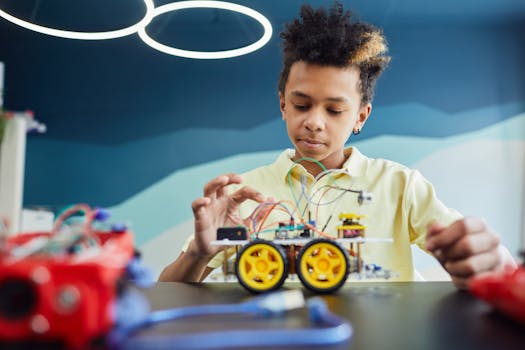Sam Altman Says Learning AI Will Keep Humans Employed. Here’s Why Else Robots Might Not Take Your Job
Sam Altman Suggests Students Learn AI to Secure Jobs

Recently, Sam Altman stated in an interview that students should learn artificial intelligence (AI) to secure their jobs. This perspective has sparked extensive discussions. Meanwhile, a study found that many human skills are not “very likely” to be replaced by general artificial intelligence (GenAI). This is not just a technical issue but also a social and psychological one.
Sam Altman’s Viewpoint
First, let’s dive into Sam Altman’s viewpoint. He believes that with the rapid development of AI technology, the future job market will favor individuals who possess AI knowledge and skills. He emphasizes that learning AI is not only about meeting future challenges but also seizing new opportunities. This perspective certainly holds water. AI has already shown tremendous potential in fields such as healthcare, finance, and education. Students who master these skills will find it easier to secure jobs in these areas and even create new career opportunities.

AI Is Not All-Powerful

However, AI is not all-powerful. While AI excels at processing large amounts of data and performing repetitive tasks, there are certain areas where human advantages remain irreplaceable. For instance, creative and emotional tasks, such as artistic creation, psychological counseling, and social work, still require human involvement. Additionally, humans outperform AI in complex decision-making and crisis management. These skills are not only difficult for machines to replicate but are often crucial in solving problems where human intuition and experience play a key role.
Study Highlights Many Human Skills Unlikely to Be Replaced by GenAI
Now, let’s look at the study that highlights many human skills are unlikely to be replaced by GenAI. These include interpersonal skills, critical thinking, and moral judgment. These skills are currently beyond the capabilities of AI. For example, an excellent salesperson not only needs to understand the product but also must be able to build trust with clients. Establishing this trust often relies on human interaction and emotional connection, which AI struggles to achieve.

Addressing the Impact of AI on Employment

Of course, this doesn’t mean we shouldn’t be concerned about the impact of AI on employment. Indeed, AI’s development will disrupt certain industries. For instance, low-skill, repetitive jobs may be automated. However, this does not mean that workers in these industries are without options. Instead, they can adapt by acquiring new skills, such as programming and data analysis, to fit into the new job landscape. Governments and society should also provide more training and support to help these individuals transition.
Conclusion
In conclusion, while AI’s advancement presents numerous challenges, it also offers new opportunities. By learning AI and related skills, we can better navigate the future job market. At the same time, we should recognize that humans have unique advantages in many areas that AI cannot replace. Therefore, instead of fearing that AI will take our jobs, we should embrace change and enhance our competitiveness.

Say Goodbye to Dull Videos
Start using Illuminix now to turn your text into stunning visuals in minutes. Begin creating amazing videos today!


